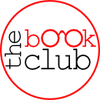 Traditional publishers prefer to print a thousand copies of a book written by an established author rather than 100 copies of books written by ten new authors. It makes financial sense to bet on a winning horse. Changes in the publishing landscape have allowed new authors to shun traditional publishing altogether and dive straight into self-publishing via Amazon or other avenues. The problem is of quality. Traditional publishing houses are meticulous about the plot, the structure, character arc, dialogue, copy-editing, and cover design, and often have a budget for advertising. For a new author who is considering self-publishing, there are myriad resources to get professional help from content to copy editing, cover design to formatting and advertising. When working on a small budget with the likelihood of a bestseller remote at best, new authors find it difficult to get it all done professionally and still come ahead. We’ve all heard of best-selling self-published authors making six figure profits and procuring book and movie deals. But for most authors, it’s a pipe dream. But new authors should be hopeful. Think of your first book as a business venture. No business makes profits on day one. It takes an initial capital investment, advertising, and discounts to attract future paying customers (fan base) before a business can take off. For fiction authors, I’m told it begins to take off only after the first few books are ready to go. So rather than wait a year between books, it’s better to write and polish up two or three, and publish them within a few months of each other. Give one out for free, or give discount packages. Once the word it out there, with 20 or more 5 star reviews, there’s a chance it is discovered. For those of us writing for the fun of it, self-publishing is a great option. I’m considering it for my next novel Shadowed Promise. Would you consider self-publishing? |
Want to learn how to write fiction? Check out these helpful books.
Archives
September 2022
Categories |



 RSS Feed
RSS Feed